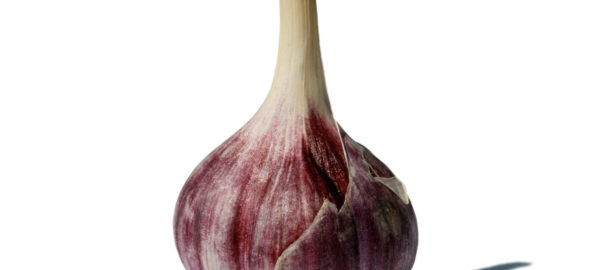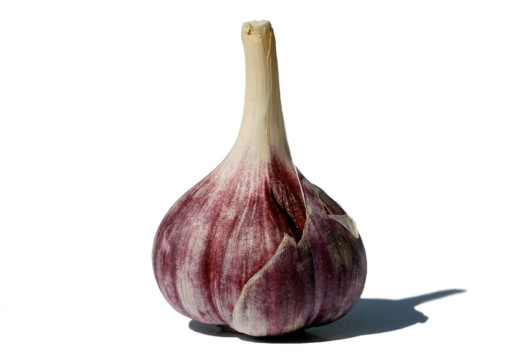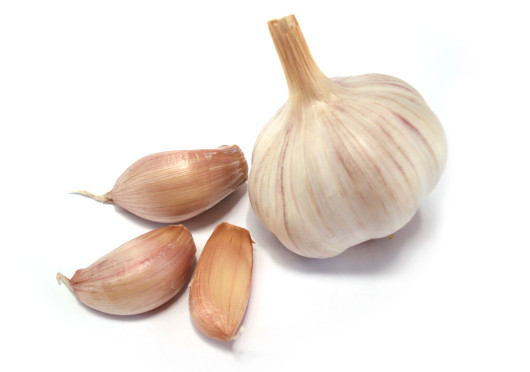Garlic – Anti-bacterial Superfood That Keeps Vampires Away

I think most of us have heard that garlic is good for you. And that it keeps the vampires away. How it does that, why is it healthy and why vampires hate it? Read on and you’ll find out.
First a few things about the plant itself. Garlic is botanically called allium sativum and is a type of bulb, that is a part of the onion genus. It is closely related to rakkyo, chive, onion and shallot. Most sources suggest that people have been using garlic for over 7,000 years! It originally came from Central Asia but today, it is available in all parts of the world and used for a wide range of purposes.
Why Is Garlic Considered a Superfood?

Why vampires don’t like garlic? The rational explanation is that this belief evolved from the fact that garlic was an ancient method of fending off many different evil spirits and vampires were considered to be one of these evils. A more detailed and vampire connected explanation says that since garlic is a natural antibiotic it kills bacteria which includes a certain type of bacteria that vampires have in their blood and can not live without. And this is why they need to stay away from it. Then again “newly” popular vampires from Twilight say that they don’t mind garlic at all. Anyway – next time you are attacked by a vampire try garlic and let us know.
Super foods are not by a set of rules defined number of foods. They are simply foods that are very rich with nutrients, minerals, and antioxidants and are able to help you fight diseases, lose weight, slow down the aging process, and more. They have properties that other “normal” foods don’t have. Garlic is considered a superfood because it has anti-bacterial and anti-fungal properties and is also packed with antioxidants.
Used By Egyptians And Ancient Greeks
In the past, the Egyptians would eat garlic before they built the pyramids. The ancient Egyptians believed that the garlic gave them strength. They also believed that garlic could help prevent bladder infections. The ancient Greeks would eat garlic before they went into battle. Additionally, during the Middle Ages, people would eat garlic because they thought that it would help combat the plague.
What Are Some of the Health Benefits of Garlic?
Garlic has been shown to have a protective effect against heart disease. High cholesterol and high blood pressure are two of the major risk factors that can make a person more susceptible to developing heart disease. Garlic helps lower low density lipoprotein, or LDL. LDL is also known as the bad cholesterol because it is the type that accumulates in the arteries.
While garlic is lowering bad cholesterol, it is simultaneously raising HDL, or the good cholesterol. HDL helps remove plaque from the arteries. Garlic can also help lower blood pressure and protects our blood cells and blood vessels against inflammation. It also contains a long list of sulfur compounds (allicin, allyl polysulfides, diallyl sulfide, diallyl disulfude and many more) that help protect us from oxidative stress (what is oxidative stress?).
There was a study done on pre-hypertensive patients. They were divided into two groups. One group was given a garlic clove every day while the other half was given a placebo. The results of the study showed that the subjects who were given the garlic clove had lower blood pressures than the subjects who were in the control group.
There has also been evidence to suggest that garlic can potentially help prevent cancer. Garlic helps reduce the amount of free radicals in the body. Free radicals are compounds that can encourage the growth of cancerous cells. Studies show that high consumption of garlic helps prevent nearly all types of cancer except prostate cancer and breast cancer. The anti cancer benefits of garlic may be again attributed to its allyl sulfide compounds, which are found to activate Nrf2 molecule. This specific molecule modifies certain cell responses, helps cells prepare for a strong survival response, and inhibits the formation of potentially cancerous cells.
One of the studies that showed that garlic can have a protective effect against cancer was performed in China. The study compared two counties, Gangshan and Quixia. The residents in Gangshan County ate about 20 grams of garlic per day. This county had a gastric cancer death rate of about 3.45 per 1,000 residents. The residents in Quixia County very rarely ate garlic. This county had a gastric cancer death rate of 40 per 1,000 residents. This is of course a very simplified explanation of the study.
Additionally, garlic can help boost the immune system. Garlic contains aliin, which gets converted into allicin when the garlic is crushed. Allicin is a natural antibiotic. It can help fight bacterial infections, such as streptococcus, which is what causes strep throat. Furthermore, garlic has been shown to help fight colds and influenza. In fact garlic’s ability to fight against infectious agents is probably its most renowned feature. Several studies have been conducted to investigate and validate garlic’s antibacterial and antiviral properties. Interestingly, recent studies showed that garlic also helps in the treatment of chronic infections involving bacteria which have developed resistance to prescription antibiotics. Certain compounds in garlic were also found to be effective in preventing infections caused by the fungus, Candida albicans as well as the bacteria, Pseudomonas aeruginosa.
Other benefits of garlic include lowering our levels of homocysteine with the help of its high amounts of B complex vitamins. This is another key factor that helps prevent cardiovascular problems. Garlic may also enhance our immune system function with its high vitamin C content.
A Few Suggestions For Eating It
Even though garlic can be consumed in its raw form, it is very acidic, and it can cause nausea. It also makes your breath smell…well…not the most pleasantly. That is you may want to consider cooking garlic before you consume it. There are many ways to use it in your everyday cooking.
Garlic can be:
- added to bread,
- mashed potatoes,
- pasta salad or regular salad,
- to almost any meal with vegetables,
- etc…
You should try to eat between two and five grams of garlic per day. If you do not like the taste of garlic, then you can get it in a form of a supplement.
Garlic Tea
To finish this garlic article – here is an unpleasant recipe for garlic tea :). It tastes quite horrible. But it’s really good if you have a cold, feel sick etc… You will need:
- a piece of ginger root,
- 5 or 6 garlic cloves,
- 2 lemons
- at least 1/4 gallon (1 liter) boiling hot water.
This is how to prepare ginger garlic tea:
- Boil the water.
- Peel the ginger and cut it into pieces.
- Peel the garlic cloves and crush them, its best to use garlic press.
- Pour boiling hot water on ginger and garlic and let the “tea” rest. You should wait at least an hour or two but its best to prepare it in the evening and leave it overnight.
- When its ready you can reheat it if you want (it might be a bit easier to drink hot than cold), squeeze the lemons, and add lemon juice to the tea. It says two lemons but the more lemons you add, the less garlicky the taste will be.
- Drink it cup by cup throughout the day. I won’t type enjoy here :)
Two More Garlic Recipes
I’ve dug out two cool recipes that include garlic. One is for garlic pasta and the second one is for roasted garlic. Roasted garlic becomes very soft and sweet. A nice addition to a whole range of meals.
and


I have a natural tendency to eat health food and garlic is one serious super food I simply love.